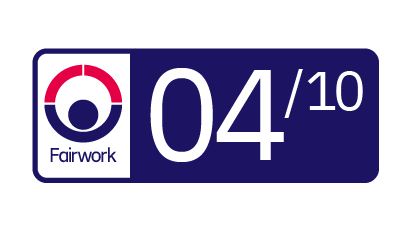This website uses cookies so that we can provide you with the best user experience possible. Cookie information is stored in your browser and performs functions such as recognising you when you return to our website and helping our team to understand which sections of the website you find most interesting and useful.
Ring Twice ( Belgium )
Principle 1: Fair Pay
Ensures workers earn at least a local living wage after costs (one additional point)
Principle 2: Fair Conditions
Mitigates task-specific risks (one point)
Provides a safety net (one additional point)
Principle 3: Fair Contracts
Ensures that no unfair contract terms are imposed (one additional point)
Principle 4: Fair Management
Principle 5: Fair Representation
Assures freedom of association and the expression of collective worker voice (one point)
Supports democratic governance (one additional point)

Notes
The Fairwork Scoring System entails that each Fairwork Principle is divided into two thresholds. Accordingly, for each Principle, the scoring system allows a first point to be awarded corresponding to the first threshold, and an additional second point to be awarded corresponding to the second threshold. The second point under each Principle can only be awarded if the first point for that Principle has been awarded.
An explanation of how we assess platforms against these principles and the information and evidence that we gather and analyse when we make our assessment can be found here.
The above scores should be read in conjunction with these explanatory notes.
Platforms are awarded a point where there is verifiable evidence to demonstrate that the platform has achieved the relevant threshold. A blank score therefore means that there was no verifiable evidence to award a point.
A platform can therefore receive a maximum Fairwork Score of ten points.
Fairwork scores are updated on a yearly basis.






